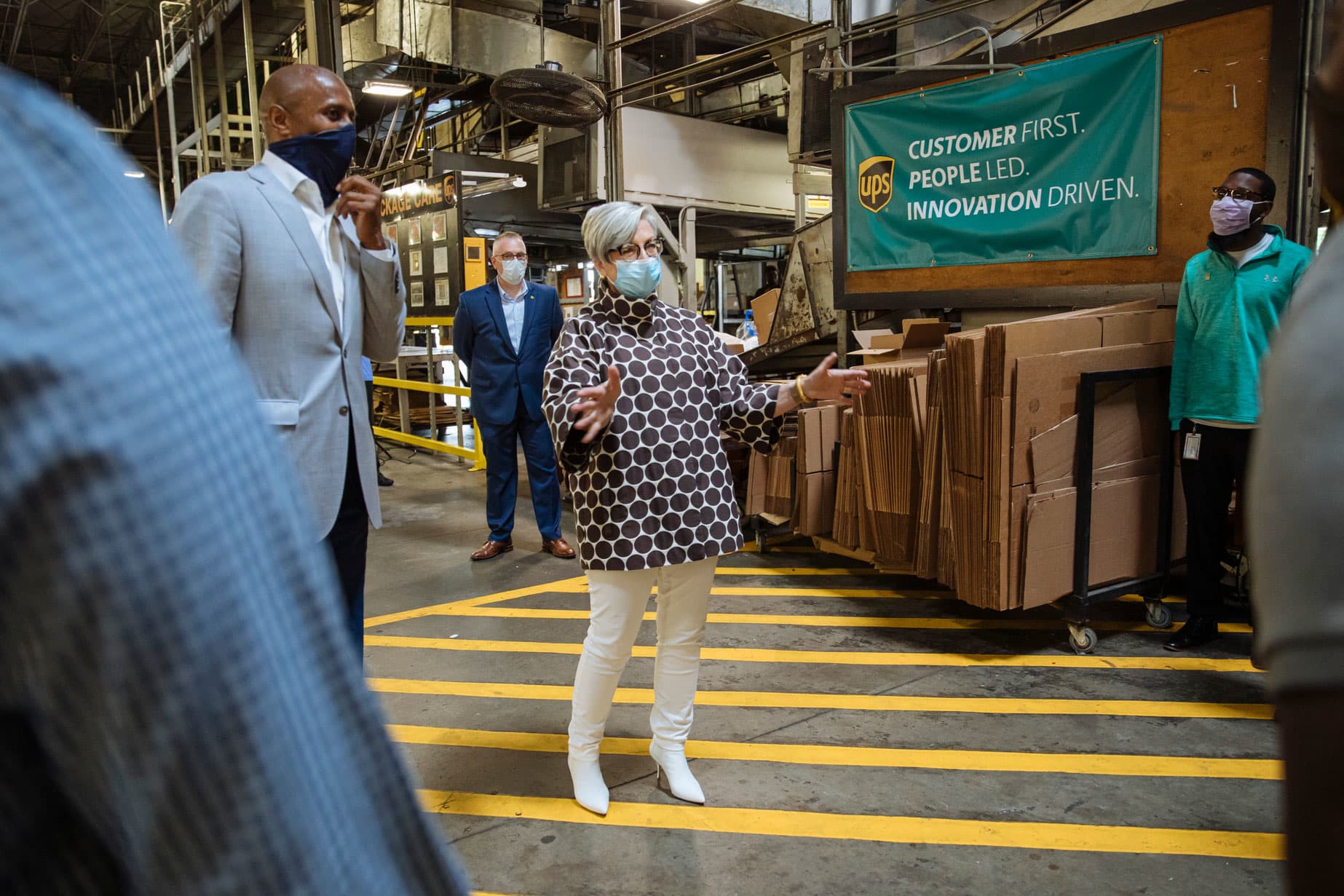
UPS CEO Carol Tome meets with workers
Source: UPS
Carol Tome has led UPS through a pandemic-fueled surge, what may turn out to be the shortest recession in history and the corporate and social aftermath of the George Floyd killing, but analysts said her biggest accomplishment since becoming CEO on June 1 has been creating a new narrative for the 113-year-old shipping company.
In an exclusive interview with CNBC, Tome shares her thoughts on her performance during her first 100 days as she looks ahead to the logistics around shipping a coronavirus vaccine and the delivery crush of the holiday season, which she said top her 2020 agenda.
“We’re making UPS ‘Better, not Bigger,'” Tome told CNBC via email. “For me, success is a UPS that is more agile in the marketplace, even easier to do business with, aligns customers with our core competencies and importantly, is one of the best places to work.”
“UPSers are essential workers,” she wrote. “In the face of the pandemic, job No. 1 has been keeping UPSers and our customers safe. The pandemic has also caused unprecedented demand, so job No. 2 has been adjusting our network and our staffing to provide industry leading service. Job No. 3 is the action we are taking to fight for equity and justice for all.”
The company announced Wednesday that it will hire more than 100,000 seasonal employees for the period between October and January to handle the expected increase in volume. Charlene Thomas, chief human resources officer, said UPS “anticipate[s] a large number will move into permanent roles after the holidays.”
Before being named CEO at UPS, Tome spent 18 years as CFO at Home Depot. She has also been a UPS board member since 2003.
From June to August, UPS saw volumes spike 25% or more year over year as the pandemic fueled unprecedented demand for shipping, according to data from ShipMatrix. During Tome’s first quarterly earnings call as CEO in July, she said 69% of its delivery volume is residential. Residential shipping is approximately a third less profitable than business shipping, according to Deutsche Bank analyst Amit Mehrota.
UPS’ surcharges on large retail shipping exceeding pre-pandemic volumes could generate more than $100 million in extra revenue, according to estimates from ShipMatrix. Several analysts told CNBC that the surcharge move signaled to investors that Tome understood the shift in e-commerce and was prepared to respond to the challenge and opportunity.
H/O: UPS CEO Carol Tome speaks to a delivery driver
Source: UPS
Tome also said investors will see a shift in how UPS handles capital expenditures. “We intend to have a laser focus on return on invested capital, reversing the downward trend that has occurred over the past several years. The first use of capital will be investments in our business to drive a frictionless and seamless experience for our customers as well as operating efficiencies in our company. The second use of capital will be to pay our dividend and the third use of capital will be to de-risk the balance sheet.”
In August, to prepare for the possible approval and distribution of a Covid-19 vaccine, UPS invested in 600 industrial cooling units or “freezer farms” for sites in Louisville, Kentucky, and the Netherlands.
Shares of UPS added more than a third to their value in 2020. Since Tome took over as CEO on June 1, shares rose 50% to $154 each at Tuesday’s close. The stock more than doubled from its coronavirus low of $82 on March 12 to its 52-week high of $166 on Sept. 2. UPS was up about 2.5% Wednesday afternoon.




